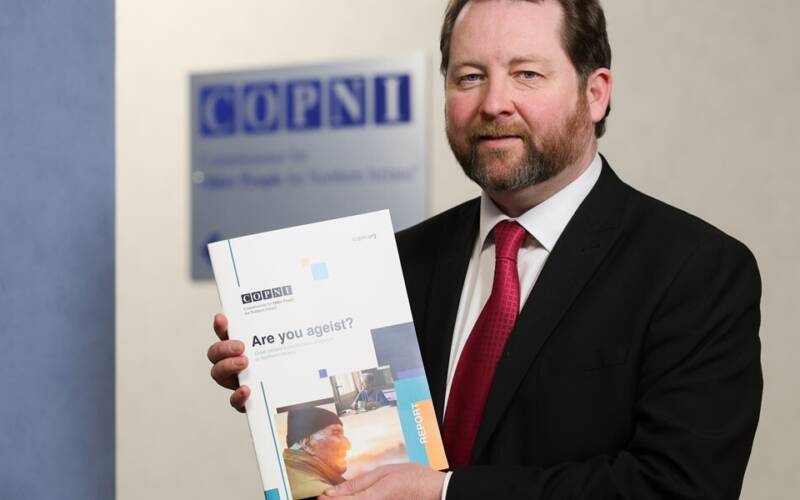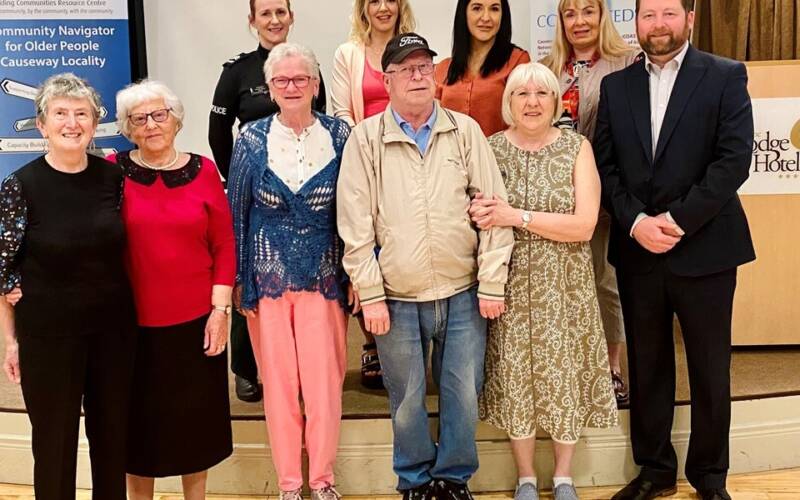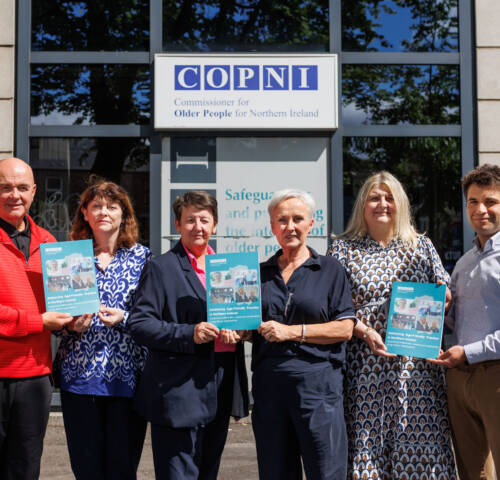The Commissioner for Older People says more needs to be done to tackle age-based discrimination in Northern Ireland, as his latest report finds almost half of older people have experienced ageism.
The Commissioner’s latest report ‘Are you ageist?’ which launched today (Wednesday 20 March) details findings from extensive consultations his office carried out with older people in every county in Northern Ireland, alongside results from a survey of 333 older people.
The report found that:
- Almost half (49%) of older people surveyed in NI have experienced ageism.
- Almost two thirds (65%) agreed that older people were viewed as a burden to society and taken less seriously as they have gotten older.
- The vast majority (87%) believe that more government engagement is needed to tackle ageism and ageist attitudes.
- An overwhelming 95% agreed that older people have a lot to contribute to the workplace.
- Almost two thirds (63%) felt that modern workplaces do not cater for older people.
Speaking about his report, the Commissioner for Older People, Eddie Lynch, said: “The conversations I have had with many older people during our consultations and the results of the survey indicate that ageism is very much prevalent in Northern Ireland and is one of the most socially accepted forms of discrimination. As a society, we need to take ageism seriously, be aware of its harmful effects and work together to make sure we are not only addressing it in our policies and behaviours, but actively challenging it whenever we encounter it.”
As part of the research, the Commissioner held events with over 150 older people where they were invited to take part in a roundtable discussion and share their own experiences of ageism.
The Commissioner continued: “In these testimonies from older people, too many recounted experiences of how they often feel overlooked and excluded from society in later life. Sometimes these were innocent oversights in personal interactions, but more seriously I heard repeated examples of people’s health concerns being put down to ‘old age’ as something to be expected and tolerated as they get older. Many older people recounted how they had felt a pressure to retire early, long before they were ready to and when they felt they still had a lot to contribute to the workplace”.
Eddie Lynch continued: “Others spoke of their frustration of a media narrative that perpetuates older people being seen as a burden to society with many expressing that they felt they were not accurately portrayed in the media. The majority of the people I spoke with had very busy, active lives with many still in employment, volunteering or having caring responsibilities.”
The report includes a set of nine recommendations for government, the media, employers and for society as a whole, which the Commissioner says, if implemented, could begin to tackle ageism in Northern Ireland. Some of these recommendations include:
- For employers - adopt age-inclusive policies and identify the factors that support older people in the workplace.
- For government - enact equality legislation to ensure older people are legally protected to the same level in Northern Ireland as other UK regions and to recognise the importance of demographic change in the future Programme for Government by including an Outcome specific to older people.
- For media - represent older people appropriately. Avoid clichés that are overly negative or positive. Do not present older people as an issue for younger people to address.
- For everyone - use appropriate language when referring to older people. Speak to older people in the same way you would any other adult age group. When talking about older people, avoid clichés, derogatory terms, and negative language.
The Commissioner concluded: “As our population ages, confronting ageism is crucial to ensuring Northern Ireland is a great place to grow old. Safeguards must be put in place to protect the position of older people in society. The recommendations in this report which include calls for age discrimination legislation in Northern Ireland as well as a high level Outcome for older people in the Programme for Government, will help to ensure that the needs of our ageing population are met.”
You can read the full report here: 'Are you ageist?' COPNI report on ageism in Northern Ireland.




